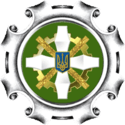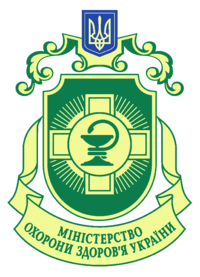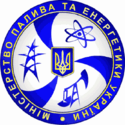Second Yatsenyuk government
| Second Yatsenyuk Government | |
|---|---|
| 17th cabinet of Ukraine (since 1990) | |
 | |
| Date formed | 2 December 2014[1][2] |
| Date dissolved | 14 April 2016 |
| People and organisations | |
| Head of government | Arseniy Yatsenyuk |
| Deputy head of government |
Yuriy Zubko Vyacheslav Kyrylenko Valeriy Voshchevsky (until 17 September 2015) |
| Head of state | Petro Poroshenko |
| Number of ministers | 20 |
| Member parties |
Petro Poroshenko Bloc "Solidarity" People's Front Self Reliance (until 18 February 2016) Fatherland (until 17 February 2016) Radical Party (until 1 September 2015) |
| Status in legislature | Coalition |
| Opposition party | Opposition Bloc |
| Opposition leader | Yuriy Boyko |
| History | |
| Predecessor | First Yatsenyuk government |
| Successor | Groysman government |
The second Yatsenyuk government was created in Ukraine after the 2014 Ukrainian parliamentary election. On 2 December 2014, 288 members (of the 423[3]) of the Ukrainian parliament approved the composition of the cabinet.[1][2] The Government was backed by (the political parties) Petro Poroshenko Bloc, People's Front, Self Reliance, Fatherland and Radical Party.[4]
Radical Party left the coalition on 1 September 2015.[5]
After Fatherland and Self Reliance left the coalition on 17 and 18 February 2016 the coalition became 5 deputies short of the 226 needed.[6][7] It was then disputed that Radical Party had left the coalition until on 29 March 2016 it was officially announced in parliament that on 31 September 2015 Radical Party had left the coalition.[8][9][10]
On 10 April 2016 Prime Minister Yatsenyuk announced he resigned.[11] On 14 April 2016 Yatsenyuk was replaced by new Prime Minister Volodymyr Groysman and thus the Groysman Government became the next cabinet of Ukraine.[12]
History
Formation
The morning after the 26 October 2014 Ukrainian parliamentary election the Petro Poroshenko Bloc and the People's Front started negotiations on forming a parliamentary coalition.[13] 226 votes are needed to form a simple majority in the Verkhovna Rada.[14]
Late 27 October preliminary results indicated that both parties had won (together) 207 seats.[15] By 30 October 2014 Self Reliance, Fatherland and the Radical Party were also involved in negotiations.[16][17] On 31 October 2014, the Petro Poroshenko Bloc, the People's Front and Self Reliance formed "a joint trilateral group and that we will begin professional talks on our joint work, including on the drafting of a coalition agreement". According to deputy prime minister Volodymyr Groysman of the Petro Poroshenko Bloc his party was open to the possibility of Fatherland and the Radical Party joining this coalition.[18] The same day the Petro Poroshenko Bloc stated it supported the candidacy of the People's Front's Arseniy Yatsenyuk (who was Prime Minister at the time) as Prime Minister of Ukraine.[19]
On 21 November 2014, Petro Poroshenko Bloc, People's Front, Self Reliance, Fatherland and the Radical Party signed a coalition agreement.[4]
On 27 November 2014, at the opening session of the new parliament) these 5 parliamentary factions formed a parliamentary coalition of 302 deputies.[20] Following this Arseniy Yatsenyuk was confirmed as prime minister by 341 votes.[21]
On 2 December 2014, Ukrainian president Petro Poroshenko granted citizenship to Natalie Jaresko, Alexander Kvitashvili and Aivaras Abromavičius, who were all potential ministers in the government.[22] Later that day Jaresko, Kvitashvili and Abromavičius were confirmed as the Minister of Finance, Health and Economy.[2][23]
Parliamentary voting
The approval of the composition of the government was marred by some last-minute delay and controversy when a group of deputies demanded that ministers be approved on an individual basis.[24] This caused hours of debate, however, the government was approved in the proposed form by 288 deputies (of the 423[3]).[1][2][24]
For the candidacy of the prime minister of Ukraine, 341 members of parliament voted for Arseniy Yatsenyuk.
| Faction | Number of members | Yes | No | Abstained | Did not vote | Absent |
|---|---|---|---|---|---|---|
| Petro Poroshenko Bloc | 143 | 139 | 2 | 2 | 1 | 1 |
| People's Front | 83 | 83 | 0 | 0 | 0 | 0 |
| Opposition Bloc | 40 | 1 | 0 | 0 | 28 | 11 |
| Non-affiliated | 38 | 12 | 0 | 4 | 9 | 13 |
| Self Reliance | 32 | 32 | 0 | 0 | 0 | 0 |
| Radical Party | 22 | 21 | 0 | 1 | 0 | 0 |
| People's Will | 20 | 19 | 0 | 0 | 0 | 1 |
| Fatherland | 19 | 19 | 0 | 0 | 0 | 1 |
| Economic Development | 19 | 16 | 0 | 0 | 2 | 1 |
| All factions | 416 | 341 | 2 | 7 | 40 | 28 |
Additional decisions
| Proposals | Yes | No | Abstained | Did not vote | Total |
|---|---|---|---|---|---|
| The composition of the Cabinet of Ministers of Ukraine[25] | 288 | 1 | 30 | 20 | 339 |
| Appointment of Poltorak as Defense Minister[26] | 347 | 0 | 33 | 82 | 308 |
| Appointment of Klimkin as Foreign Affairs Minister[27] | 351 | 0 | 0 | 32 | 383 |
Radical Party leaving coalition
Radical Party left the coalition on 1 September 2015 in protest over a vote in parliament involving a change to the Ukrainian Constitution that would lead to decentralization and greater powers for areas held by pro-Russian separatists.[5] The same day Radical Party's Vice Prime Minister Valeriy Voshchevsky tendered in his resignation.[28] Parliament accepted the resignation on 17 September 2015; after failing to pass the motion four times on 15 September 2015.[28]
Fall
February 2016 saw the start of the fall of the cabinet after economy minister Aivaras Abromavičius announced his resignation claiming the government did not had a real commitment to fight corruption.[12]
16 February 2016 no-confidence vote and Fatherland and Self Reliance leaving the coalition
On 16 February 2016, president Petro Poroshenko asked Prime Minister Yatsenyuk to resign.[29] Also on 16 February 2016 the government managed to survive a vote of no confidence from the Ukrainian parliament.[30]
The next day Fatherland left the coalition since it believed that the previous day had shown that the government had turned into a "shadow clan-political coalition" that "doesn't want to carry out reforms".[7] Fatherland would have liked the next government to be a technocratic government.[31] Self Reliance then (also on 17 February 2016) issued an official statement on its Facebook page in in which it argued “A cynical coup has occurred in Ukraine, with the help of the president, the prime minister, the kleptocratic part of the coalition, and the oligarch bloc” that led to the second Yatsenyuk government being an “illegitimate government”.[7] The next day Self Reliance left the coalition; meaning that the coalition became 5 deputies short of the 226 needed.[6][7] Under Ukrainian law parliament has 30 days to form a new coalition after a Government coalition collapses; if it can not produce a new coalition new elections are needed.[32] But on 19 February 2016 First Deputy Chairman of parliament Andriy Parubiy stated that since the Parliamentary Speaker had not officially announced in parliament that Radical Party had left the coalition this party was still a part of the parliamentary coalition.[9] Also on 19 February 2016 Radical Party leader Oleh Lyashko stated in parliament that the Parliamentary Chairman had received a letter that announced that the Radical Party had left the coalition.[10] It was officially announced in parliament that on 31 September 2015 Radical Party had left the coalition on 29 March 2016.[8]
Vote of no confidence results
| Faction | Number of members | Yes | No | Abstained | Did not vote | Absent |
|---|---|---|---|---|---|---|
| Petro Poroshenko Bloc | 136 | 97 | 0 | 10 | 10 | 19 |
| People's Front | 81 | 0 | 1 | 0 | 2 | 78 |
| Non-affiliated | 51 | 28 | 0 | 2 | 1 | 20 |
| Opposition Bloc | 43 | 9 | 0 | 0 | 1 | 33 |
| Self Reliance | 26 | 25 | 0 | 0 | 1 | 0 |
| Revival | 23 | 0 | 0 | 0 | 11 | 12 |
| Radical Party | 21 | 15 | 0 | 0 | 0 | 6 |
| People's Will | 20 | 6 | 0 | 0 | 1 | 13 |
| Fatherland | 19 | 15 | 0 | 0 | 1 | 3 |
| All factions | 420 | 195 | 1 | 12 | 28 | 184 |
Final days of cabinet
On 10 April 2016 Yatsenyuk announced that he would resign as Prime Minister and would ask parliament to fire him on 12 April 2016.[11] He added that his own party (People's Front) "remains in the coalition because today it is the only way to defend the state."[11] On 25 March 2016 Parliamentary Speaker Volodymyr Groysman had been nominated by coalition partner Petro Poroshenko Bloc to replace Yatsenyuk.[11][33] On 12 April parliament did not held a vote on Yatsenyuk's resignation, because (Yatsenyuk's party) People's Front and Petro Poroshenko Bloc could not agree on the forming of a new government.[34] On 14 April 2016 parliament did hold a vote on his resignation resulting in Yatsenyuk being replaced by new Prime Minister Groysman and his Groysman Government.[12]
Composition
Under the Constitution of Ukraine the Ukrainian president submits nominations to parliament for the post of Minister of Foreign Affairs and minister of defense. On 2 December 2014, President Petro Poroshenko proposed that the Verkhovna Rada reappoint Pavlo Klimkin and Stepan Poltorak for these posts.[35] The same day Poltorak was reappointed as Minister of Defense by 347 People's Deputies of Ukraine and Klimkin as Minister of Foreign Affairs by 351 votes.[36] A few hours later 288 Deputies (of the 423[3]) approved the composition of other ministers in one vote.[1][2]
The Ministry of Information is a new ministry which oversees the information policy related to the 2014 pro-Russian unrest in Ukraine; according to its Minister Yuriy Stets one of its goals is "active counteraction to the Russian information aggression".[2][37] Reporters Without Borders firmly opposed the creation of such a ministry, stating "the media should not be regulated by the government".[38]
When Radical Party left the coalition on 1 September 2015 Radical Party's Vice Prime Minister Valeriy Voshchevsky tendered in his resignation.[28]
On 2 July 2015, the Minister of Ecology Ihor Shevchenko was fired by parliament because "[the ministry] doesn't fulfill its basic functions and obligations".[39]
During the lifespan of the second Yatsenyuk Government the Cabinet Ministers of agriculture, health and information Oleksiy Pavlenko, Alexander Kvitashvili and Yuriy Stets all announced and later withdrew their resignations.[40]
On 11 December 2015 infrastructure minister Andriy Pyvovarsky resigned.[41] Pyvovarsk was never formally dismissed by parliament.[42]
On 4 February 2016 leader of Self Reliance parliamentary faction Oleh Berezyuk stated that Pavlenko no longer represented his party in the second Yatsenyuk Government.[43]
When Fatherland left the Yatsenyuk Government on 17 February 2016 its minister Ihor Zhdanov refused to resign and hence was expelled from Fatherland.[44]
Economy minister Aivaras Abromavičius announced his resignation on 3 February 2016 claiming the government did not had a real commitment to fight corruption.[12][45] Just like Pyvovarsky, Abromavičius was never formally dismissed by parliament.[46]
| Nominating party key |
Petro Poroshenko Bloc "Solidarity" | |
|---|---|---|
| People's Front | ||
| Self Reliance | ||
| Radical Party of Oleh Lyashko | ||
| Fatherland | ||
| Presidential nominations | President Petro Poroshenko |
References
- 1 2 3 4 UKRAINIAN RADA SUPPORTS COALITION-PROPOSED GOVERNMENT LINEUP BY 288 VOTES, Interfax-Ukraine (2 December 2014)
- 1 2 3 4 5 6 7 Rada supports coalition-proposed government lineup, Interfax-Ukraine (2 December 2014)
Rada approves new Cabinet with three foreigners, Kyiv Post (2 December 2014)
(Ukrainian) Rada voted the new Cabinet, Ukrayinska Pravda (2 December 2014) - 1 2 3 Parliamentary elections not to be held at nine constituencies in Donetsk region and six constituencies in Luhansk region - CEC, Interfax-Ukraine (25 October 2014)
- 1 2 Five political forces sign coalition agreement, Interfax-Ukraine (21 November 2014)
Ukraine's parliamentary parties initial coalition agreement, Interfax-Ukraine (21 November 2014) - 1 2 Ukraine Radical Party Quits Ruling Coalition After Deadly Clash, Bloomberg News (1 September 2015)
- 1 2 Samopomich pulls out from ruling coalition in parliamen, Interfax-Ukraine (18 February 2016)
(Ukrainian) "Self" comes from the coalition, Ukrayinska Pravda (18 February 2016) - 1 2 3 4 Batkivschyna faction pulls out of coalition, UNIAN (17 February 2016)
Batkivshchyna faction leaves ruling coalition, Kyiv Post (17 February 2016) - 1 2 Liashko faction officially quits coalition, UNIAN (29 March 2016)
- 1 2 (Ukrainian) Paruby: Coalition acts are more than 226 signatures, Ukrayinska Pravda (19 February 2016)
- 1 2 (Ukrainian) Lyashko showed evidence of exit from the coalition and the proposed new format, Ukrayinska Pravda (19 February 2016)
- 1 2 3 4 Ukrainian PM Yatsenyuk resigns, UNIAN (10 April 2016)
Ukraine Prime Minister Arseniy Yatsenyuk to resign, BBC News (10 April 2016) - 1 2 3 4 "Ukraine MPs approve Volodymyr Groysman as new PM". BBC News. 14 April 2016. Retrieved 14 April 2016.
- ↑ Negotiations on forming parliament coalition begin in Ukraine, Interfax-Ukraine (27 October 2014)
- ↑ Poroshenko Bloc candidates leading in 64 single-seat constituencies - CEC, Interfax-Ukraine (27.10.2014)
- ↑ Poroshenko Bloc to have greatest number of seats in parliament, Ukrainian Television and Radio (8 November 2014)
People's Front 0.33% ahead of Poroshenko Bloc with all ballots counted in Ukraine elections - CEC, Interfax-Ukraine (8 November 2014)
Poroshenko Bloc to get 132 seats in parliament - CEC, Interfax-Ukraine (8 November 2014)
Poroshenko Bloc candidates leading in 64 single-seat constituencies - CEC, Interfax-Ukraine (27 October 2014) - ↑ Poroshenko and Yatsenyuk’s parties maneuver for lead role in coalition , Kyiv Post (29 October 2014)
- ↑ President, PM and Samopomich Party leader discuss Rada coalition, Interfax-Ukraine (30 October 2014)
Batkivschyna reports constructive talks between Poroshenko, Tymoshenko on coalition formation, Interfax-Ukraine (30 October 2014)
Liashko says he had talk with president on coalition formation issues, Interfax-Ukraine (31 October 2014) - ↑ Poroshenko Bloc, People's Front, Samopomich begin talks on forming new coalition - Hroisman, Interfax-Ukraine (31 October 2014)
- ↑ Poroshenko nominates Yatseniuk for premier's post – Twitter, Interfax-Ukraine (31 October 2014)
Poroshenko Bloc backs Yatseniuk as candidate for prime minister - party statement, Interfax-Ukraine (31 October 2014)
Friends For Now: Can Poroshenko, Yatsenyuk work together?, Kyiv Post (30 October 2014) - ↑ Five factions form Verkhovna Rada coalition, Interfax-Ukraine (27 November 2014)
Poroshenko guesses parliamentary coalition to be slightly larger, Interfax-Ukraine (27 November 2014)
Governing coalition formed in parliament, UNIAN (27 November 2014) - 1 2 Ukrainian parliament appoints Yatseniuk prime minister, Interfax-Ukraine (27 November 2014)
- ↑ Poroshenko orders to grant citizenship to Jaresko, Kvitashvili and Abromavicius, Interfax-Ukraine (2 December 2014)
Foreign technocrats given Ukrainian citizenship before cabinet vote, Reuters (2 December 2014) - ↑ "Ukraine names US national Jaresko as finance minister". en-maktoob news. Yahoo news. 2 December 2014.
- 1 2 Ukraine parliament approves new government, Associated Press (2 December 2014)
- ↑ Individual voting. Verkhovna Rada. December 2, 2014
- ↑ Individual voting. Verkhovna Rada. December 2, 2014
- ↑ Individual voting. Verkhovna Rada. December 2, 2014
- 1 2 3 4 Ukrainian parliament accepts Deputy PM Voschevsky's resignation, Interfax-Ukraine (17 September 2015)
- ↑ http://www.bbc.co.uk/news/world-europe-35585651
- ↑ Ukraine crisis: PM Yatsenyuk survives no-confidence vote, BBC News (16 February 2016)
- ↑ (Ukrainian) Tymoshenko wants Yatsenyuk's resignation or early elections, Ukrayinska Pravda (17 February 2016)
- ↑ Ukraine's ruling coalition collapses, Xinhua News Agency (18 February 2016)
- ↑ Ukraine’s president settles on a PM candidate, Politico Europe (25 March 2016)
- ↑ Ukraine: Lawmakers end session without new PM vote, BBC News (12 April 2016)
- ↑ Poroshenko proposes reappointing Klimkin and Poltorak as foreign and defense ministers, Interfax-Ukraine (2 December 2014)
- 1 2 3 (Ukrainian) Rada appointed ministers of defense and foreign affairs, Ukrayinska Pravda (2 December 2014)
- ↑ Ukraine must establish Information Policy Ministry , National Radio Company of Ukraine (2 December 2014)
- ↑ "RWB Opposes Creation of Information Ministry". Reporters without Borders. 2 December 2014. Retrieved 3 December 2014.
- 1 2 Rada dismisses Ecology Minister Shevchenko, Interfax-Ukraine (2 July 2015)
- ↑ Agriculture, health, information ministers change their mind about resigning, UNIAN (4 February 2016)
- ↑ Andriy Pyvovarsky: A lot done, more to do in Ukraine’s infrastructure sector, Kyiv Post (11 December 2015)
Red tape, low salaries are reason for resignation of minister Pyvovarsky and his team, Interfax-Ukraine (14 December 2015) - ↑ Infrastructure Minister on vacation, not going to return to office – source, UNIAN (16 March 2016)
- 1 2 (Ukrainian) Berezyuk Pavlenko no longer represents the "Self", Ukrayinska Pravda (4 February 2016)
- 1 2 (Ukrainian) "Fatherland" expelled from the party Zhdanova, Ukrayinska Pravda (17 February 2016)
- ↑ Ukraine Economy Minister decides to resign, UNIAN (3 February 2016)
- ↑ New Cabinet formed in Ukraine, UNIAN (14 April 2016)
- ↑ И.о. министра экологии назначен Сергей Курыкин
- ↑ (Ukrainian) Cabinet appointed Deputy Minister of Environment Vronsky acting Minister, Ukrayinska Pravda (5 February 2016)
External links
- Governmental Portal of Ukraine – official site of the Cabinet of Ministers





_01.png)




